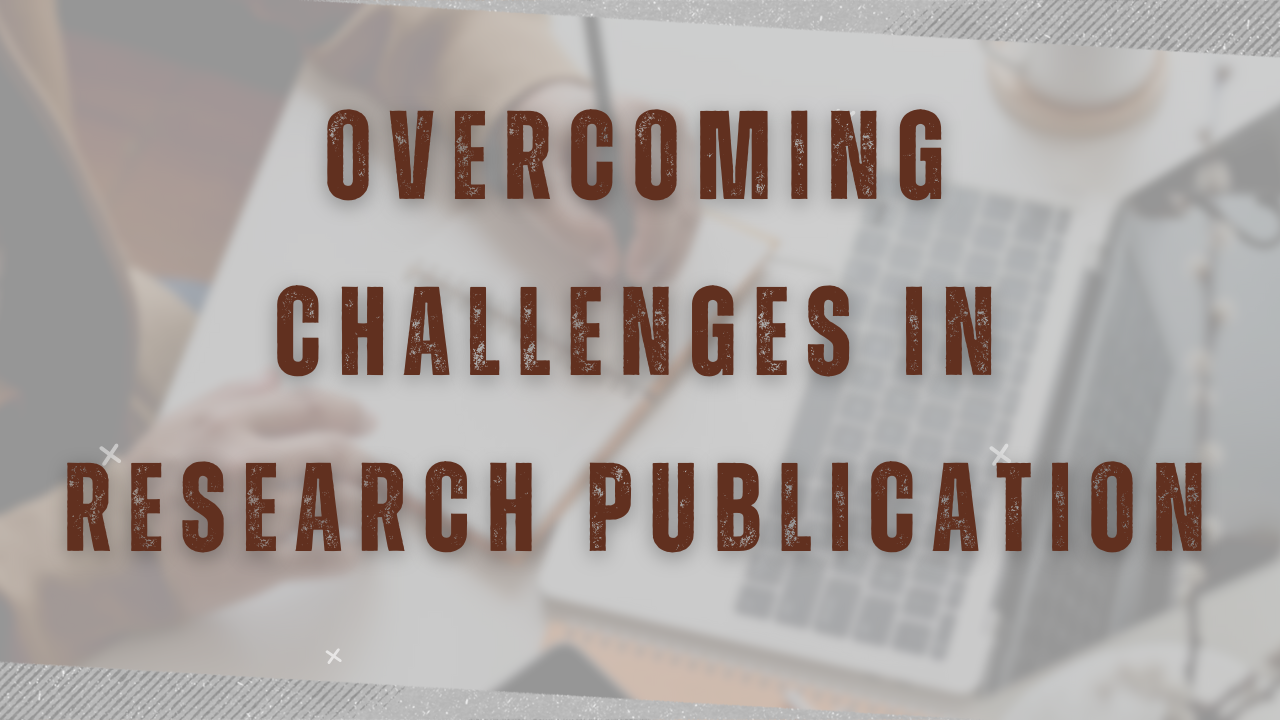03Feb

Publishing research in reputed journals is a critical step in a scholar’s academic journey. However, the process is not always smooth. Researchers, particularly PhD scholars, often face numerous Challenges in Research Publication that can delay or even prevent the publication of their work. Understanding these Challenges in Research Publication is essential for overcoming them and successfully publishing in Scopus, SCI, or other indexed journals.
In this blog, we will discuss the major difficulties faced by researchers in publication and provide insights into overcoming these obstacles.

Choosing the right journal is crucial, as submitting to an unsuitable journal can lead to immediate rejection. Researchers must consider factors like:
Solution:
Conduct thorough research on journal guidelines, scope, and recent publications. Platforms like Scimago Journal Rank (SJR) and Web of Science can help identify suitable journals.
One of the most disheartening challenges is manuscript rejection. Journals often reject papers due to:
Solution:
Most high-impact journals follow a rigorous peer-review process, where experts critically evaluate the research for accuracy, relevance, and contribution to the field. This process can be time-consuming, leading to delays in publication.
Solution:
Plagiarism, even unintentional, can lead to outright rejection. Ethical issues like data fabrication, manipulation, or self-plagiarism (duplicate submission) can tarnish a researcher’s reputation.
Solution:
Many reputed journals charge article processing fees, which can be a barrier for researchers with limited funding.
Solution:
Non-native English speakers often struggle with language clarity and grammar, which can lead to rejection.
Solution:
Academic researchers often face immense pressure to publish frequently, which can lead to rushed submissions and lower-quality research.
Solution:
Publishing is not just about acceptance; researchers need their work to be cited to gain recognition. Poor visibility can limit the impact of research.
Solution:
Despite these Challenges in Research Publication, researchers can increase their chances of successful publication by adopting strategic approaches such as selecting the right journal, ensuring ethical standards, improving manuscript quality, and effectively responding to peer reviews. At Kenfra Research, we assist scholars in overcoming these Challenges in Research Publication, providing guidance on journal selection, plagiarism checking, and manuscript improvement to ensure successful publication in indexed journals.
By staying persistent, following best practices, and leveraging expert assistance, researchers can navigate the complex world of academic publishing and achieve their scholarly goals.
Kenfra Research understands the challenges faced by PhD scholars and offers tailored solutions to support your academic goals. From topic selection to advanced plagiarism checking.

The introduction chapter is the opening to your thesis—it sets the tone, provides the foundation, and outlines what’s to come... read more
Maharashtra Governor emphasises inclusion of saint literature in school education The Maharashtra Governor's emphasis on including saint literature in school education... read more

Writing a structured literature review is one of the most important milestones in academic research, especially for graduate students and... read more

Writing a PhD dissertation is a monumental task that requires dedication, planning, and a strategic approach. As the culmination... read more

Updated List of Annexure Journals for Anna University read more

A PhD journey is known for its intellectual rigor, emotional toll, and isolation. Add to this the lure of... read more
IIT JAM 2024 registration begins tomorrow at jamiitm.ac.in, direct link here IIT JAM 2024 registration begins tomorrow at jamiitm.ac.in, direct link... read more

The journey of navigating the PhD publication process and getting your research published can often feel like navigating a... read more
WhatsApp us
Leave a Reply